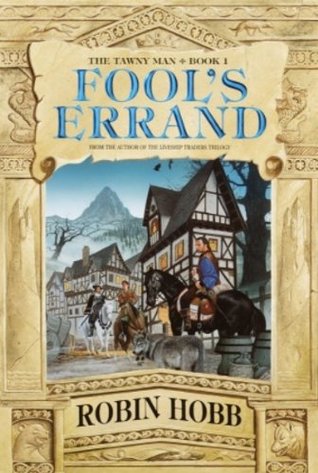 My Hobbsian (and let’s be honest, to a very real extent Hobbesian) journey continues, with the first book of the Tawny Man trilogy. Fool’s Errand, in addition to being a thoroughly apt title, is a surprisingly focused book. We’ve returned to Fitz’s quiet, retired life (one cottage, one wolf, one teenaged ward, one sporadic booty call), and the Fool has returned from wherever the Fool has been[1], and catching up on the last 15 years of not much happening[2] takes up the first third of the book. Then, the remaining thirds are taken up by, well, you know Fitz was going to get re-involved in the Farseer family and the fate of the Six-or-Seven Duchies, or else how do you even have a new trilogy starring him? But all of the above covers maybe three weeks. Like I said: focused.
My Hobbsian (and let’s be honest, to a very real extent Hobbesian) journey continues, with the first book of the Tawny Man trilogy. Fool’s Errand, in addition to being a thoroughly apt title, is a surprisingly focused book. We’ve returned to Fitz’s quiet, retired life (one cottage, one wolf, one teenaged ward, one sporadic booty call), and the Fool has returned from wherever the Fool has been[1], and catching up on the last 15 years of not much happening[2] takes up the first third of the book. Then, the remaining thirds are taken up by, well, you know Fitz was going to get re-involved in the Farseer family and the fate of the Six-or-Seven Duchies, or else how do you even have a new trilogy starring him? But all of the above covers maybe three weeks. Like I said: focused.
So, there’s this one small errand to be undertaken, and if it’s going to cost Fitz everything, that’s pretty much how these things go. Details would go to the heart of what the book and the trilogy are likely to be about, so I’ll stay out of them, but I’m not sure how long it’s been since I’ve been pounded so hard over the head by a book, regarding a single unifying theme; in this case, letting go.
The thing that surprised me the most is that I never felt the sense of personal misery from the first trilogy, nor of societal misery from the second. This was mostly a straight adventure story, albeit shot through with threads of quiet, persistent melancholy. But what I’m saying is, melancholy is so much nicer than misery.
Anyway, I’ll keep reading these quickly, because I’m coming close to needing to finish out the Malazan books, and I don’t want that big of a gap interrupting this story, in which I am already heavily invested.
[1] I mean, it’s pretty clear where, but spoilers. And I reserve the faintest sliver of doubt, based on notions of the other prophet and catalyst on the other side of the Red Ship Wars not being a mislead, but instead a clue. But it’s a very fine sliver indeed.
[2] Or a well-documented trilogy happening, depending upon where you fall in your beliefs about the books
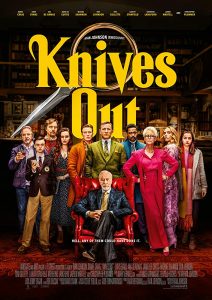 As you cannot in any way ascertain from my shoddily maintained review site, it’s been a little while since I saw any movies, and so when Thanksgiving and its multiple days off and/or light work load came along, it thusly became movie time. Of course, that’s been nearly a week, so I can not remember what other movies were in contention anymore, only that what we actually saw was
As you cannot in any way ascertain from my shoddily maintained review site, it’s been a little while since I saw any movies, and so when Thanksgiving and its multiple days off and/or light work load came along, it thusly became movie time. Of course, that’s been nearly a week, so I can not remember what other movies were in contention anymore, only that what we actually saw was  I think this is the worst I’ve ever done. I’m over 90% sure I haven’t missed any reviews and this is the only old one, but damn. Did I read a book and later forget? Probably not, since I take my Hobb slowly, and because of the standard refrain of busy busy work towne, not to mention a board game convention and other various life distractions. Then again… uh-oh, I’d better check the Deathlands stuff. I think that was only while camping and has already been addressed.[1]
I think this is the worst I’ve ever done. I’m over 90% sure I haven’t missed any reviews and this is the only old one, but damn. Did I read a book and later forget? Probably not, since I take my Hobb slowly, and because of the standard refrain of busy busy work towne, not to mention a board game convention and other various life distractions. Then again… uh-oh, I’d better check the Deathlands stuff. I think that was only while camping and has already been addressed.[1] As usual, a weekend in the woods means another Deathlands book[1]. I don’t have a lot to say about it, because it was extremely transitional. Also because reviewing these is starting to feel a little like reviewing individual issues of comics? I think the latter is more true because this one was transitional. Like, when you have a really good four to six issue Spider-Man or Avengers run, and they’ve set up hints about what will happen next that’s big, but in between there are a couple of episodic villain of the week bits, with maybe two panels each dedicated to “no really, the next story is about to happen”? This is that but in book form.
As usual, a weekend in the woods means another Deathlands book[1]. I don’t have a lot to say about it, because it was extremely transitional. Also because reviewing these is starting to feel a little like reviewing individual issues of comics? I think the latter is more true because this one was transitional. Like, when you have a really good four to six issue Spider-Man or Avengers run, and they’ve set up hints about what will happen next that’s big, but in between there are a couple of episodic villain of the week bits, with maybe two panels each dedicated to “no really, the next story is about to happen”? This is that but in book form.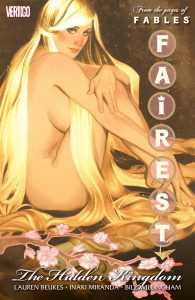 I’m going to start in a couple of weird places. First, a word about Amazon. I understand that it has turned into something of a flea market, like, from an observational perspective. This doesn’t bother me because I can mostly tell what I’m buying and what I’m not. I hear people talk about counterfeits, and I believe it, but I’m either okay at this or lucky, and either way, yay. I bring this up because I just saw something unpleasant while preparing for this review. The link I found for
I’m going to start in a couple of weird places. First, a word about Amazon. I understand that it has turned into something of a flea market, like, from an observational perspective. This doesn’t bother me because I can mostly tell what I’m buying and what I’m not. I hear people talk about counterfeits, and I believe it, but I’m either okay at this or lucky, and either way, yay. I bring this up because I just saw something unpleasant while preparing for this review. The link I found for 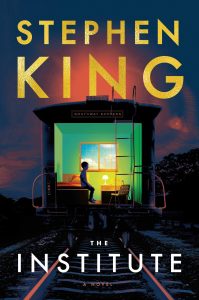 It’s nice to have read a book within a reasonable timetable for a change. I mean, sure,
It’s nice to have read a book within a reasonable timetable for a change. I mean, sure, 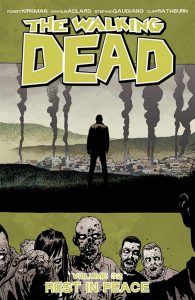 I’ve been saying since… well, at least since the end of
I’ve been saying since… well, at least since the end of  I know mostly all I do is complain about being behind and/or working constantly. But here’s my point. I read another Deathlands book, right? This is the book I take camping because I might finish one or two over a long weekend, all while helping with a giant fireworks show plus explosion, and also getting up to who knows what all manner of shenanigans. (I mean, I know, but this is a public forum, of however limited readership.)
I know mostly all I do is complain about being behind and/or working constantly. But here’s my point. I read another Deathlands book, right? This is the book I take camping because I might finish one or two over a long weekend, all while helping with a giant fireworks show plus explosion, and also getting up to who knows what all manner of shenanigans. (I mean, I know, but this is a public forum, of however limited readership.)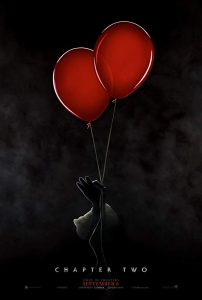 Remember that time where they took my very favorite book and made it into
Remember that time where they took my very favorite book and made it into 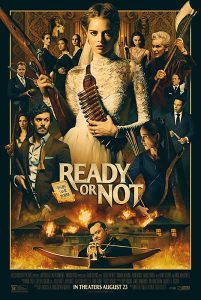 Here’s how you can tell you’re too far inside an industry: when I watched
Here’s how you can tell you’re too far inside an industry: when I watched